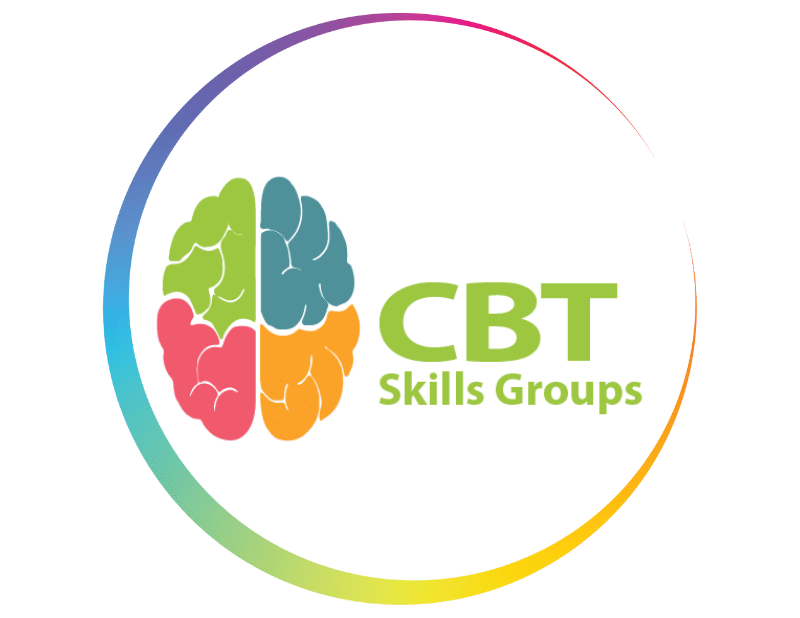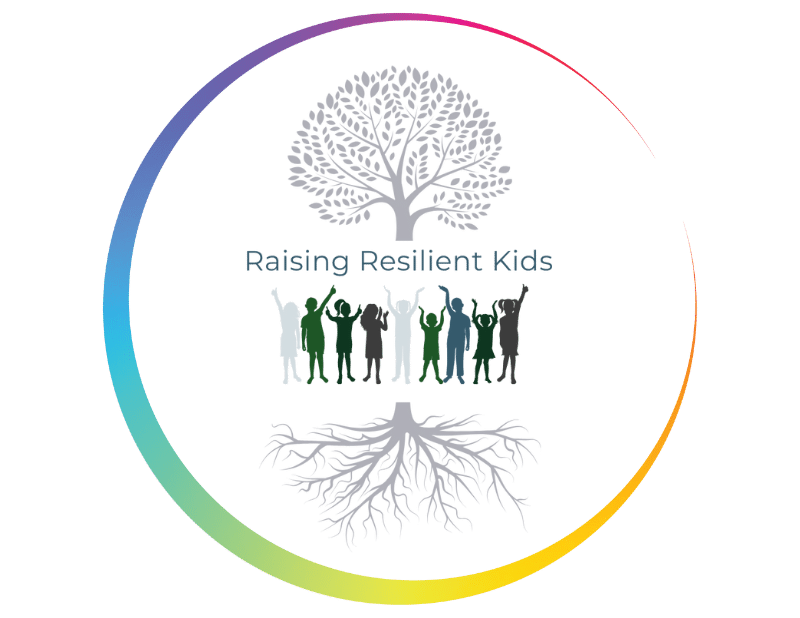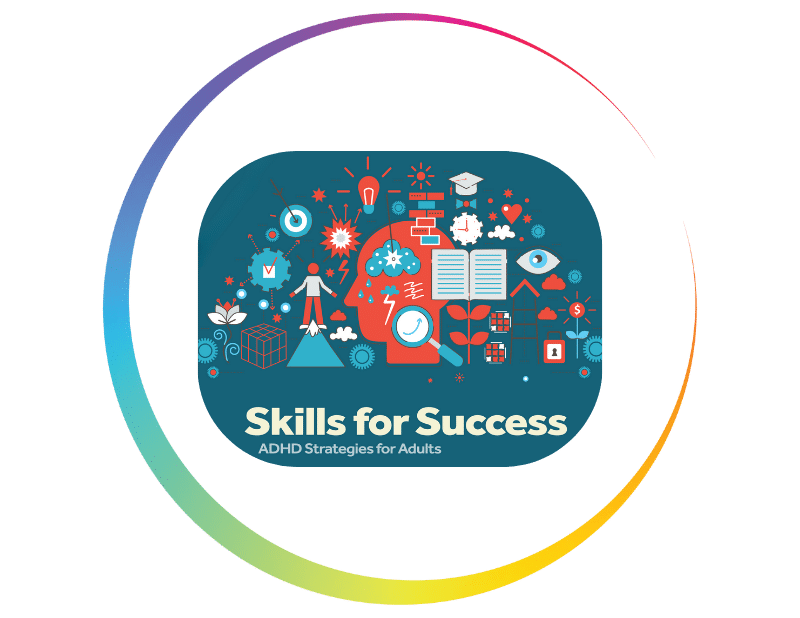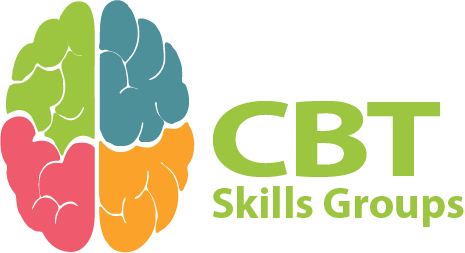What We Offer at CBT Skills
Mind Space is proud to offer a menu of self-management groups that explore a variety of concepts and skills to support you to improve your wellbeing. Everyone who is referred to the program is offered our level 1 groups, which include CBT Skills Foundations, Raising Resilient Kids Parenting, and Skills for Success: ADHD Strategies for Adults. You choose which group is right for you.
Everyone is on their own learning journey and will become comfortable with the course content at their own pace. Completers (those who attend at least 6 out of 8 sessions) of the CBT Skills Foundations course will qualify for level 2 groups, which delve deeper into concepts for continued learning. We encourage participants to repeat the CBT Skills Foundations group until they are familiar with most of the concepts and skills.
All our groups are open to all BC residents with a valid Canadian health card number.

LEVEL 1:
CBT Skills Foundations
General Groups:
These groups introduce the foundational concepts of Cognitive Behavioural Therapy (CBT), weaving in aspects of mindfulness, emotion regulation and Acceptance and Commitment Therapy over an 8-week series. You will learn these concepts and apply practical skills in your daily life, with the aim of identifying which ones are most helpful to manage your stress and symptoms.
Specific CBT Skills Foundations groups are designated for defined populations, in addition to the general groups:
-
- Women only
- Men only
- LGBTQIA2s+
- Cancer Survivors
- Young Adults (ages 19-25)
- New Parents

LEVEL 1:
Raising Resilient Kids Parenting
Raising Resilient Kids parenting groups are for parents with kids 0-6 years old. In this group, we teach skills to prepare and support you in raising a secure, resilient child based on the best evidence from child development, mindfulness, attachment, and reflective parenting. You will learn how to be curious of your child’s inner world, navigate conflict, normalize distress, and manage not only your child’s but also your own big emotions and behaviors. We will also teach you how to create a secure home base to support your child’s development. This is a preventative care program designed to strengthen caregiver-child relationships. Caregivers who attend the groups must be referred by a doctor, but the child does not have to have any particular diagnosis for the caregiver to be eligible to participate.

LEVEL 1:
Skills for Success: ADHD Strategies for Adults
Skills for Success: ADHD Strategies for Adults group is for adults (19-70 years old) with a past or current diagnosis of ADHD (or if you or your health care professional suspect you have ADHD). In this group we use evidence-based strategies to help you set realistic goals, prioritize, manage time, and reduce distractions. You will use the group to develop consistent habits. You will learn skills to cope with feeling overwhelmed, a common emotion in ADHD. If you are struggling other serious mental health problems, we encourage you to seek help for those issues before taking this group.
LEVEL 2: CBT Skills Building Blocks
Once you have completed a CBT Skills Foundations group (i.e., attended at least 6 out of 8 sessions) you qualify for CBT Skills Building Blocks groups that further explore skills and concepts you have learned in the Foundations. Only participants who qualify for these groups will be emailed about these offerings.
An Introduction to Mindfulness
In this 8 week course, you will be introduced to a variety of mindfulness and compassion practices to support your wellbeing. Each session will be 1 hour and 45 minutes long and will include an opportunity to check in with the group, try different forms of mindfulness practice in session, share about your experiences in small groups, and explore how mindfulness may fit into your daily life. The emphasis will be on experiential learning and each session will include one longer practice (about 15-20 min in length typically) and several shorter practices. The course will be of most benefit to you if you are able to try some daily home practice between sessions. In contrast to Mindfulness Based Cognitive Therapy, this series includes lovingkindness, compassion and gratitude cultivation practices along with mindful awareness practices.
Mindfulness-based Cognitive Therapy
In this 8-week course, you will be introduced to mindfulness-based cognitive therapy skills for managing anxiety and depression.
CBT Skills for Insomnia
Most of us have experienced periods of difficulty with insomnia. The goal of this course is to help participants acquire a better understanding of sleep in general, of insomnia, and the obstacles which can interfere with restorative sleep. We will discuss the structure of sleep and the ways in which you may be able to more successfully manage any difficulties you experience. You will be asked to complete a weekly bedtime sleep diary and morning sleep log to help you to keep track of what skills you are able to successfully apply and the benefits you, hopefully, begin to experience.
Booster Groups
Booster Groups are groups that delve deeper into specific topics that were taught in the CBT Skills Foundations course. These groups do not introduce new information, rather provides the space for you to work with the concepts and skills in a more interactive format utilizing more small group discussions about your home practice. These courses refer to the CBT Skills Foundations workbook and use handouts for class exercises. They span 4 weeks with each session being 1 hour 30 minutes in length.
Booster Group - Avoidance: Procrastination & Perfectionism
The goal of this course is to help you understand how avoidance ‘works’, using material from the Foundations course. In particular, the False Promise of Avoidance will be discussed, as it applies to procrastination and perfectionism. We will work with the premise that avoidance is a move away from feelings (discomfort/fear). For example, procrastination allows one to avoid boredom, frustration, shame or even anger. Perfectionism will be examined as the flip side of procrastination, simply a different way of avoiding potential negative consequences. At the end of this course, you will hopefully be able to more accurate identify the feelings you hope to avoid and to examine the costs and benefits of such a response. We will use SMART goal setting as one technique to change unhelpful habits.
Booster Group - Cognitive Change
The goal of this course is to help you understand, label and modify cognitive distortions, using material from the Foundations course. The concept of Core Beliefs will be reviewed and incorporated into the discussion. You will have time in small groups of 2 or 3 to refer back repeatedly to the Triangle of Experience, reminding oneself of the interactions between thoughts, feelings and behaviors. It is important that you have enough time to learn about ‘untwisting’ distortions and to practice this skill in small groups. By the end of Session 4, you will, hopefully, have more confidence in your ability to identify and modify distortions.
Booster Group - Values
The goal of this course is to help you further explore values (what is important to you – at this time), using material from the Foundations course. You will apply the Triangle of Experience when identifying and prioritizing what is important to you. You will work together in small groups and use tools including SMART goals and the pros and cons grid to take steps in the direction of what you identify as a priority value to focus on for the course. Discussions about your obstacles (what gets in the way of moving towards a value or a goal) and the concept of Core Beliefs and Cognitive Distortions will also be discussed for further insight and learning.
Booster Group - Self-compassion
This course offers an opportunity for you to learn ways to evaluate your own ability for self-compassion, using material from the Foundations course. We will use the Triangle of Experience to identify thoughts, feelings and behaviour which contribute to one’s difficulty practicing self compassion. This course reviews the many benefits of practicing self compassion and offers suggestions for strengthening your ability to take better care of your own needs.
